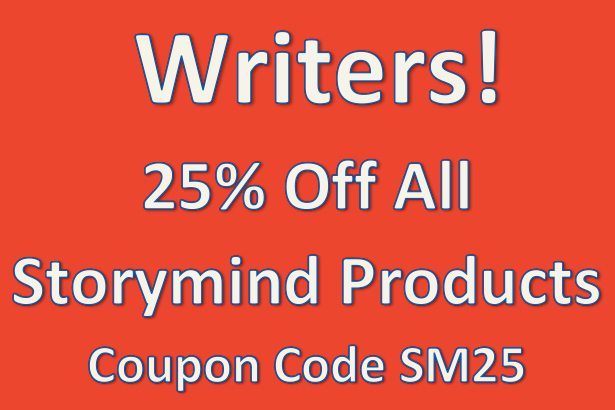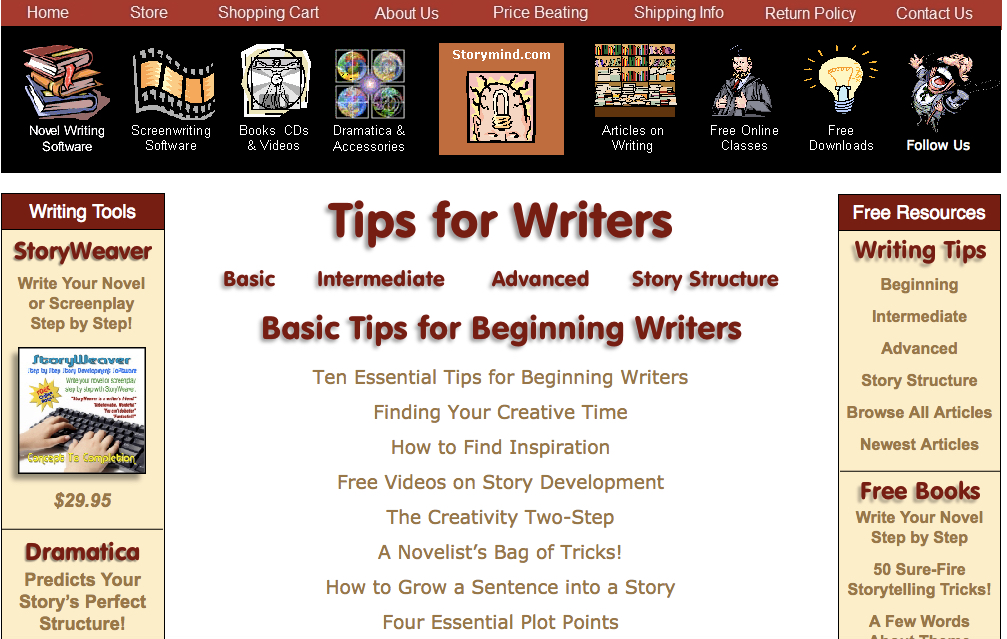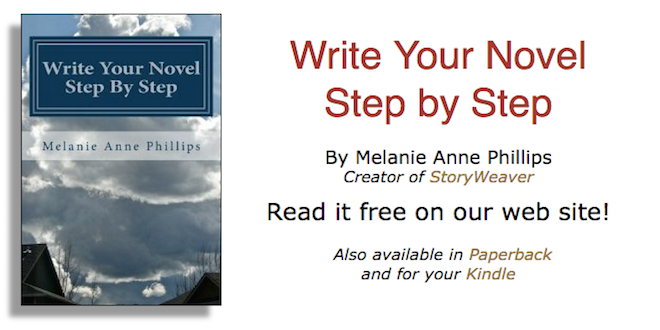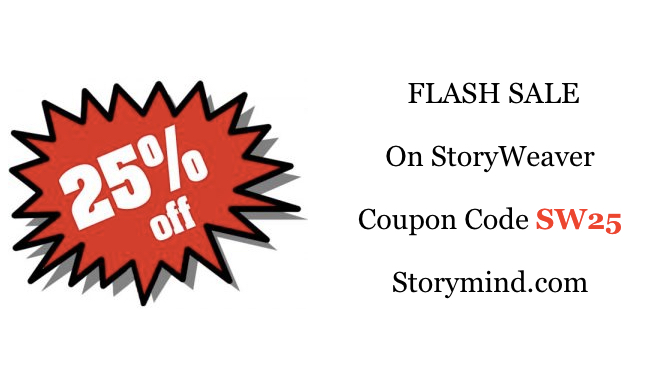Category Archives: Announcements
Narrative for Movies and Television – Part 1 of 3
 As promised to the attendees, here is the first of three parts of the outline for the seminar I presented to the Director’s Guild of Canada last Sunday in Vancouver. Parts 2 and 3 will be posted tomorrow and the next day.
As promised to the attendees, here is the first of three parts of the outline for the seminar I presented to the Director’s Guild of Canada last Sunday in Vancouver. Parts 2 and 3 will be posted tomorrow and the next day.
It was a spectacular session with a packed house of really eager creative industry people, looking for ways to break through creative block, inject life into their stories, and find and fix elusive narrative problems.
Judging by the response, they found what they were looking for.
Thanks again to the DGC for their invitation, to Roy Hayter who initiated the concept and sheparded it through, and to Barbara Anne Schoemaker (BA) who anticipated and handled every detail to not only make the seminar a huge success, but to make my experience both incredible and indelibly memorable. Good people, one and all!
So, here’s part one of the seminar outline for reference, which of course does not contain any of the graphics, animations, numerous video clips or commentary.
Narrative for Movies & Television Seminar
Fix it in the Script – NOT in Post!
Part 1 of 3 – Fixing Character Problems in Existing Scripts
Narrative for Movies & Television
Fix it in the script – NOT in post
Welcome!
Introduction
Seminar Overview
Morning Session
Identify common serious narrative flaws
Techniques to repair flawed narratives
Afternoon Session
Story Development Techniques
Application of Structure to the Creative Process
What is Narrative?
Origin of Narrative
Generations of Storytellers
Trial And Error
Conventions of Storytelling
Patterns of Dramatics
The Concept of Narrative
Models of Narrative
Aristotle and the 3 Act structure
Jung and the collective unconscious
Campbell and the Hero’s Journey
Each had exceptions; Each was a formula
Each showed only a glimpse of the elusive structure
A New Model of Narrative
Structure is Non-Linear
The Story Mind
Teaser
“You and I are both alike”
What’s Happening!!!
Narrative is happening
These are the kinds of dramatic elements that make up narrative.
If a narrative doesn’t have all the important elements, it will fail
Let’s learn how to recognize and repair flawed narrative elements…
Narrative Problems with Characters
The most common narrative missteps regarding characters, and how to fix them.
The Main Characterv& Influence Character
The passionate core of your story’s message
Main & Influence Characters
So who ARE these guys?
Main Character represents a paradigm of belief.
Influence Character represents an opposing view.
Between them is your story’s passionate argument.
The result of this argument is your story’s message.
To Kill A Mockingbird
4 Principal Characters
Main Character
First Person Experience for Audience
Influence Character
An alternative life view
Protagonist
Prime mover of the effort to achieve the goal
Antagonist
Diametrically opposed to Protagonist achieving the goal
Head Line & Heart Line
Heroes and Villains
The Hero
Protagonist
Main Character
Central Character
Good Guy
The Villain
Antagonist
Influence Character
Second Most Central Character
Bad Guy
Hero and Villain Swap
Anti-Heroes
Anti-Villains
Melodrama
Head line AND heart line between same characters
Power of storytelling masks gaps in arguments
Arguments are incomplete
Conclusions not supported
The Dramatic Triangle
Can fully separate as in To Kill A Mockingbird
Can hinge on one character and split the lines
Most common variation (the love interest)
Other variations
The Heart Line
Main Character Resolve
The Main Character doesn’t have to change to grow
He or she can grow in their resolve
The influence character pressure the MC to change
Key establishing points to reference later.
Change Characters
Establish a belief system
Establish illustrations of belief
Announce resolve
Verify resolve
Steadfast Characters
Establish belief system
Establish illustrations of belief
Announce resolve
Verify resolve
One Must Change
Main or Influence will convince the other to change
Change occurs at character climax
Success in logistic goal hinges on who changes
Message determined by results of change
A Changing Influence Character
Character Arc
Character Arc 101
The Steady Freddy
The Griever
The Weaver
The Waffler
The Exception Maker
The Backslider
How Change Happens
The Head Line
Archetypes
Origins of Archetypes
Each of us has the same complement of basic traits
We use them to solve our personal problems
When we join in a group, we quickly self-organize
As specialists, the group gains depth and focus
The 8 Archetypes
Protagonist
Initiative
Antagonist
Reticence
Reason
Intellect
Emotion
Passion
Guardian
Prudence
Contagonist
Expediency
Sidekick
Confidence
Skeptic
Doubt
External / Internal
Protagonist
Pursuit/Consider
Antagonist
Prevent/Reconsider
Reason
Logic/Control
Emotion
Feeling/Uncontrolled
Guardian
Help/Conscience
Contagonist
Hinder/Temptation
Sidekick
Support/Faith
Skeptic
Oppose/Disbelief
Star Wars Archetypes
Protagonist
Luke Skywalker
Antagonist
The Empire
Reason
Princess Leia
Emotion
Chewbacca
Guardian
Obi Wan Kenobi
Contagonist
Darth Vader
Sidekick
R2D2 & C3PO
Skeptic
Han Solo
Oz Archetypes
Protagonist
Dorothy
Antagonist
Wicked Witch
Reason
Scarecrow
Emotion
Tin Man
Guardian
Glinda
Contagonist
Wizard
Sidekick
Toto
Skeptic
Lion
Oz vs. Star Wars
Leia- Reason
Logic
Control
Scarecrow- Reason
Logic
Uncontrolled
Oz vs. Star Wars
Chewbacca- Emotion
Feeling
Uncontrolled
Tin Man- Emotion
Feeling
Controlled
Oz Element Swap
Scarecrow (Reason?)
Logic
Uncontrolled
Tin Man (Emotion?)
Feeling
Controlled
Complex Characters & Relationships
Complex Characters
Structural Relationships
Character Relationships
Four-Dimensional Characters
Motivations
Methodologies
Purposes
Evaluations
Summing Up Characters
Head Line characters involved in the goal
Heart Line characters involved in the message
Head Line determines if your story will make sense
Heart Line determines if your story will have meaning
Intermission
Part 2 of the outline will be posted tomorrow and part 3 on the next day
Mental Sex, Characters, and You
 Check out our new audio program:
Check out our new audio program:
Mental Sex, Characters and You – Just $9.95!
This three-hour audio program in mp3 (download and/or play online) explores one of the most crucial aspects of narrative structure that reflects not only in characters, but in each of us as well.
Mental Sex, Characters and You explores the nature and impact of gender-based thinking on stories and on ourselves. You’ll learn about the reasons for fundamental innate differences in the underpinnings of our male and female minds, and how we can benefit from recognizing our inherent mental abilities and compensate for gender-related areas of distraction, unclarity, bias.
You’ll discover the pathways of rationalization and justification that differ between the mental sexes and how to recognize, compensate for, play into, and manipulate each mental sex, no matter which mental sex you are!
This program was recorded live at a once-only presentation by Dramatica co-creators Melanie Anne Phillips and Chris Huntley, based on their theories of narrative structure. Interestingly, the Mental Sex concept emerged when Phillips & Huntley discovered that the underlying mechanism of stories was significantly altered depending upon whether the main character was of a male or female mind. While the same considerations were made by each, the order in which they were explored and the relative significance of the results was functionally different.
In this program, you’ll get a range of insights on story structure, character, real people, society, and even yourself! There is no other explanation of the differences between male and female thinking as fully developed, as precisely defined and organized, and as completely argued, from a rock solid foundation to startling high-level conclusions.
Order today and expand your understanding of story structure, characters, the people in your life, and yourself!
Click for details and to order….
Narrative for Movies and Television
 I’ve been invited to present a one-day seminar to the Director’s Guild of Canada in Vancouver, BC on April 2. The topic is NARRATIVE FOR MOVIES AND TELEVISION. Registration is currently open only to DGC members, and seating is limited, but if any space is left they will open registration to the public. For information contact the Director’s Guild of Canada at info@dgcbc.com
I’ve been invited to present a one-day seminar to the Director’s Guild of Canada in Vancouver, BC on April 2. The topic is NARRATIVE FOR MOVIES AND TELEVISION. Registration is currently open only to DGC members, and seating is limited, but if any space is left they will open registration to the public. For information contact the Director’s Guild of Canada at info@dgcbc.com
Our New Writing Tips Page – Beginner Through Advanced!
Free Book – Write Your Novel Step By Step
FLASH SALE! – 25% OFF STORYWEAVER
Writing Tips Newsletter #197
Our latest Writing Tips Newsletter is now available!
 In this issue:
In this issue:
Story Structure for Passionate Writers / The Influence Character / Characters: Cogs in the Machine? / The Radical Story Mind / Finding Your Creative Time / Four Throughlines in To Kill A Mockingbird / Finding Inspiration for Your Novel
Read it all and subscribe if you like at:
http://app.streamsend.com/ss/1/KkVO/cg8pxhmoij
Flash Sale on StoryWeaver!
Happy New Year, Writers!
I’m Melanie Anne Phillips, owner of Storymind.com as well as the creator of StoryWeaver, Idea Spinner and the co-creator of Dramatica.
I’ve been teaching creative writing now for more that twenty-five years, and the best tip I have is both simple and the most effective:
Set aside a specific time to write. It doesn’t have to the the same clock-time every day, the same amount of time, or even every day at all.
But you need to schedule the time like you would an appointment with a friend.
And then, when that time comes, don’t sit in front of a blank page trying to come up with something to say. Rather, let your mind wander to favorite memories, favorite subjects, or even to problems, worries or fears.
Somewhere in that session, you’ll think of something so important or emotionally powerful to you that you find yourself thinking of things you want to say about it – actually composing sentences in your mind just to hear how they sound, just to feel how expressing that particular feeling or understanding affects what you are experiencing in your heart and mind.
Does it amplify it, diminish it, contextualize it or does it remain, still powerful, but unaltered by the words you think?
That’s when you write. Take those sentences and put them into your manuscript. They can be private thoughts shared by one character with another or a section of narrative in a first person novel. They can be the basis for a plot, a relationship, a personal journey, a theme: a message.
Never try to force the Muse to work on a story problem. Cut her free. By nature, she is full of boundless energy to explore any issue in which you find real interest, be it a positive draw or a negative from which you hope to escape.
Sure, we all have dreams of writing a great novel or script, and perhaps we will. But the odds go WAY down if you don’t write about what moves you personally.
Now here’s the rub – this is a real pisser for me personally… The kinds of stories I like to read are not the kinds of stories I’m very good at writing. Man, that gets stuck in my craw!
I want to write sci-fi-ish action stories of great adventure, incredible discovery and amazing tales of triumph over unbelievable odds! But every time I try it is all mechanical, stilted, or (worst of all) completely lame.
Yep, I’d like to be a pastry chef, but I’m good at making sauces. I’d like to be a chess champion, but I flub it all up, yet I can triumph in checkers or tic-fracking-tac-freaking-toe.
My private horror (don’t tell anybody): I want to write majestic,sweeping, raging fiction, but all I’m good at is this. Yes, this. Writing inspiring articles so others can write all the wonderful things I’d like to write. What manner of hell is this?
Well, I’ve come to terms with it. That’s why you’ll find literally HUNDREDS of articles on story structure and storytelling on Storymind.com.
I came to the conclusion, I’d rather write what comes naturally, than get perpetually stuck trying to write what I like to read. I’ve finally embraced the awful, yet sobering and even somehow calming notion that it is better to be a carefree pianist, bringing music into the world with little effort at all, than a continually struggling trombonist, blurting out a few stilted notes and never affecting anyone nor even finding satisfaction in my own work.
So I urge you all to set up that time where you are forced (by resolution) to do nothing. And from that nothing will rise your Muse like a Kraken of Creativity, snarling out its arms to embrace every shiny, beckoning or threatening notion within its horizon, consuming it, and spewing out prose of a grand and powerful ilk upon the world, upon yourself, upon your soul.
May God have mercy upon us all, for we are writers.
Now get Kraken in 2017, for God’s sake (and for your own)!
Melanie Anne Phillips






